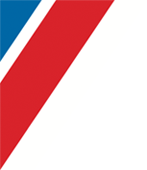13 October 2021
Portsmouth City Council has announced that its cabinet has approved a strategy for shore power provision at Portsmouth International Port, which will allow visiting ships to switch their engines off whilst alongside.
The port has “bold plans” to tackle emissions and carbon, according to a press release. The plans, which aim to improve air quality and the port’s carbon footprint, have been put together with the government’s Maritime 2050 strategy in mind.
To achieve that ambition, Portsmouth is set to adopt experimental green technologies, turning the port into a “living laboratory,” Portsmouth City Council wrote.
This will ultimately help the port to become one of the UK’s first zero-emission ports. According to the press release, Portsmouth’s City Council, which owns and operates Portsmouth International Port, agreed to support the port’s efforts to provide shore power, subject to securing funding.
This includes the short-term development of a battery storage solution, for providing shore power to smaller cruise vessels, as well as a long-term ambition of supplying all vessels that visit the port.
With an existing AI-controlled ‘master’ battery on-site, funded by Innovate UK, combined with new battery storage being installed alongside a new solar array, the port will have enough energy to supply small cruise ships whilst alongside. One of the port’s long-standing customers, Noble Caledonia, has agreed to upgrade their vessels to take shore power when the project goes ahead.
For the longer term, options are now being explored to increase the amount of power available at the port, so that shore power can be rolled out to all of the berths at Portsmouth. However, this will require government support across the ports industry, given the investment required.
“We’re determined to be industry leaders when it comes to sustainability. This innovative approach, which incorporates existing technologies already available or planned at the port, means we can look to have shore power up and running by the end of 2022 for smaller cruise ships. We’re now looking at long-term plans to roll out this capability to our other berths,” Mike Sellers, port director, said.
“We’re supporting Maritime UK’s call for significant government funding in the spending review to support these changes so that levels of investment are similar to the aviation sector, who get significant support,” he added.
Sellers said that there are “many quick sustainability wins within the industry” that can be achieved with support, and the demand is there too.
“The shipping industry is pushing forward on clean fuel technology and our largest customer, Brittany Ferries, has placed orders for new hybrid ferries for the Portsmouth to France routes, operational from 2024,” he noted. “Collaboration is key to upgrading the port’s electricity supply, so that clean energy can be provided to all vessels when they are alongside.”
Portsmouth City Council’s Cabinet also committed to continuing their support for the port’s green recovery sustainability drive, which includes a hydrogen electrolyzer on the port, rolling out the current fuel filtering project and the construction and piloting of an external fine particle filter at the port boundary.
“As a port operating in the heart of a major city, and that is owned by the people of Portsmouth, we have an obligation to do everything we can to minimize our impact as we continue to grow sustainably in the coming years,” said Jerry Clarke, senior project manager. “I’m incredibly proud to have led on the improvements we’ve made in the past two decades, and thank the council for their support as we move towards our net-zero carbon and zero emissions goals.”


